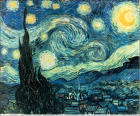![]()
A 'different kind' of dizziness...
As discussed, Inner ear dizziness is different to the normal dizziness most people have experienced at some point in their lives. With Uncompensated Labyrinthitis, there are generally a host of symptoms rather than a couple. Not only does the patient feel dizzy but the world looks very different to how it did. Ear symptoms are commonly noted as are others such as problems with memory and fatigue.
Labyrinthitis most commonly starts with an acute bout of spinning vertigo which is very frightening and then slowly turns into a sense of imbalance and dizziness. This is not the only way Labyrinthitis can start though. Another way is for the patient to feel a somewhat insiduous feeling of dizziness which then escalates over about one week the spinning attack is never experienced (although sometimes it is whilst the patient is asleep and therefore does not notice) but instead severe dizziness in the head as well as disequilibrium and a feeling that the world is hugely surreal.
Our Labyrinthitis started in different ways but we have the same symptoms. Below are the symptoms that both of us have/are experiencing as a result of Uncompensated Labyrinthitis. The symptoms are experienced 24/7, not in spells, from the moment we wake up, they are there CONSTANTLY. Isla however, has now reached a point where she feels ok for much of the time - due to compensation - but for a long time they were there all the time.
Dizziness...
Spinning in head - like marbles. This sensation is like one of those "snow domes" being violently shaken! If very intense, this dizziness can lead to a feeling of extreme faintness.
Imbalance.
Feeling of being constantly drunk.

Inner ear dizziness can make you feel drunk all the time - but without the fun!
World is warped and very surreal. As if looking through the world through odd lenses. This feeling is always there. Particularly prominent in the dark. We liken this feeling to constantly looking through a video camera lens or a fish tank. World feels like a dream also.
Stiff out of focus eyes.
Lightheaded, faint, woozy.
Constant internal movement (feels like a pendulum) and external (can see things shifting slightly and the room often looks like it is a swing).
Shifting of objects - can be subtle or severe - for example: when turning a corner or looking down, the environment or objects can significantly move.
Feeling of being pushed forwards/backwards/side to side. If back is not against a chair when sitting, body does not know where it is in space.
Bouncing when walking Marshmallow feet. This can be quite severe.
Motion intolerance. When disembarking from a car, train, plane, you feel as if you are still moving and the ground bounces. This can even happen after going on an escalator.
Can often visibly see the ground breathing moving slightly.
Buzzing in the head feels like vibrations or a short circuit.
Every movement feels "off" and not clear at all - a bit like you are moving through "thick air". Movement of the floor - as well as "bouncing" - when standing still there is also a feeling that the floor is moving - like being in a lift.
Increased night blindness.
True spinning vertigo - during illness or sometimes during the night.

Patients with inner ear dizziness feel like they are on a ferry - but without the life jacket!
Things that worsen our dizziness...
Head movements particularly up this is v uncomfortable.
Colds/illness including headaches.
Computers.
The dark.
Small rooms and crowds.
Tiredness.
Menstruation (for girls!).
Focusing on people or sitting for periods of time.
Walking.
Shops.
Supermarkets.
Ear Symptoms...
Feeling of fluid in both ears.
Tinnitus worse when dizziness is bad. Can be quite a strong buzzing.
Popping.
Momentary deafness.
Blocked feeling full ears.
Catarrh.
Sensitivity to sounds.
Other Symptoms...
Nausea.
Low stamina. Fatigue. This is common with inner ear problems as the brain is putting all of its energy into keeping you balanced - where as in normal people balance is an automatic process.
Low immunity.
Cognitive symptoms such as: Memory/Thinking problems due to mental processing overload; Clumsiness; Feeling spaced out/vacant; Brain fog worse when dizziness bad. Is like having a head packed full of cotton wool and then trying to think through it! These symptoms can be quite disturbing at times.
Vivid dreams, frequent waking.
Depression and anxiety (due to having to deal with the disorder plus it is believed that the vestibular system controls our anxiety/depression levels so an increase in these in vestibular sufferers may also be due to this fact as well as having to cope with the disorder).
Loss of self-reliance, self confidence, self esteem.
The vestibular
system filters and fine tunes all sensory information entering the brain
- light, sound, motion, gravitational energy, chemical information, air
pressure, temperature. It is responsible for controlling and fine tuning
our vision, hearing, balance, sense of motion, altitude and depth, sense
of smell, sense of time, sense of direction and anxiety/depression levels
as mentioned above. Therefore any of these processes may be affected when
suffering from inner ear dysfunction. See below for information on symptoms from VEDA:
Van Gogh had Menieres Disease and this is his painting
titled "Starry Night" which is his perception of his dizziness.
Copyright (c) 2006 Labyrinthitis.org.uk; All Rights Reserved
